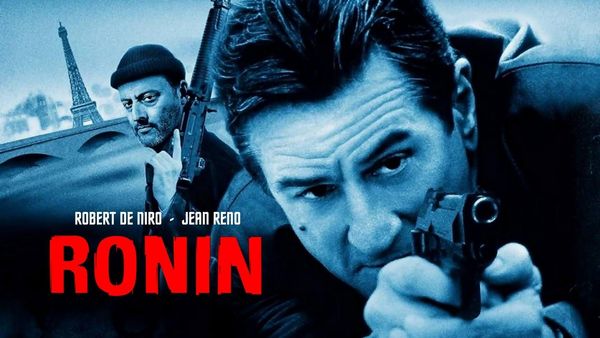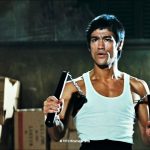RONIN 1998

Released in 1998, Ronin is a compelling thriller that expertly weaves together elements of espionage, action, and character-driven drama. Directed by John Frankenheimer and featuring a stellar ensemble cast, including Robert De Niro, Jean Reno, and Natascha McElhone, the film is celebrated for its intricate plot, intense action sequences, and sophisticated narrative. As a modern classic in the genre, Ronin offers a fascinating exploration of trust, betrayal, and the high-stakes world of covert operations.
The film opens with a gripping sequence that sets the stage for its high-octane narrative. The story unfolds in a world of shadows and intrigue, where former intelligence operatives are hired for a high-risk mission involving a mysterious briefcase. The film’s title, Ronin, refers to masterless samurai in Japanese history, a fitting metaphor for the protagonists, who are skilled operatives without a clear allegiance or purpose beyond their current assignment.
Robert De Niro stars as Sam, a former intelligence operative with a reputation for efficiency and a complex past. De Niro’s performance is understated yet powerful, conveying the character’s depth and internal conflict with remarkable nuance. Sam is recruited by a shadowy figure known only as Deirdre, played by Natascha McElhone, to lead a team of operatives on a mission to recover a stolen briefcase. The briefcase’s contents are never fully revealed, adding an air of mystery that drives the plot.

Jean Reno, in a standout role, plays Vincent, a French operative with a personal stake in the mission. Reno’s portrayal of Vincent is both charismatic and enigmatic, bringing a sense of depth and intrigue to his character. The chemistry between De Niro and Reno adds layers of complexity to the narrative, as their characters’ interactions are marked by both camaraderie and underlying tension.
One of the film’s most notable features is its intricate and suspenseful plot. Ronin is driven by a series of twists and turns that keep the audience guessing. The screenplay, penned by David Mamet and Richard Weisz, masterfully builds tension through its complex narrative structure. The story explores themes of loyalty, deception, and the moral ambiguity of espionage, creating a rich and multifaceted experience.
The action sequences in Ronin are a highlight of the film. John Frankenheimer’s direction, combined with the expertise of the stunt team and a realistic approach to choreography, results in some of the most exhilarating and well-executed action scenes of the 1990s. Notably, the film features an unforgettable car chase sequence through the streets of Paris, which is widely regarded as one of the best in cinematic history. The chase is not only a technical achievement but also a testament to the film’s commitment to realism and authenticity.

The cinematography in Ronin complements the film’s intense atmosphere. The use of natural light and gritty urban landscapes enhances the sense of realism and urgency. The film’s visual style captures the dark and enigmatic world of espionage, while also providing a striking contrast between the claustrophobic interiors and the wide-open cityscapes.
The soundtrack, composed by Elia Cmiral, further enriches the film’s atmosphere. The score blends elements of suspense and action, creating a dynamic soundscape that amplifies the tension and drama. The music’s integration into the narrative is seamless, heightening the emotional impact of key scenes and adding to the overall intensity of the film.

Ronin is also notable for its exploration of the moral and psychological complexities of its characters. The film delves into the motivations and inner conflicts of its operatives, revealing their vulnerabilities and personal stakes. This character-driven approach adds depth to the narrative, making the espionage elements more engaging and relatable.
In conclusion, Ronin (1998) is a masterful thriller that combines a gripping plot, intense action sequences, and rich character development. John Frankenheimer’s direction, along with standout performances from Robert De Niro, Jean Reno, and Natascha McElhone, creates a film that is both intellectually stimulating and thrillingly entertaining. The film’s exploration of themes such as trust, betrayal, and the moral ambiguities of espionage, coupled with its impressive action choreography and cinematography, make it a standout entry in the genre. For fans of espionage thrillers and action-packed dramas, Ronin offers a sophisticated and exhilarating cinematic experience that continues to captivate audiences.











